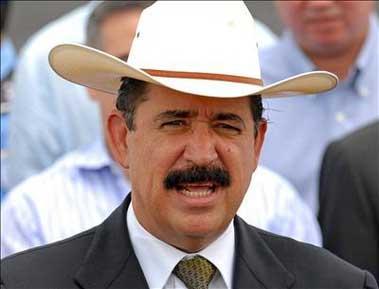Honduras Rejects Zelaya Deal, Reasserts Sovereignty

The Honduran Supreme Court rejected on Friday the San José Accord, which was brokered by Costa Rican President Oscar Arias. The Supreme Court insisted that all accords are subject to the country's Constitution.
Arias's seven-point proposal had called for deposed president Manuel Zelaya's reinstatement and amnesty.
The Honduran Supreme Court's ruling lays out nine items that directly address Arias's proposal. Item number 2 specifically reminds Zelaya that he's accused of
crimes against the form of government, treason, abuse of authority, against the public and the State of Hondurasand would be facing charges upon his return.
Zelaya supporters in the country threw fire-bombs at a newspaper office last week and set fire to a fast-food restaurant. However, the supporters that had congregated at the Nicaraguan border are heading back to their homes. Last week Honduras ordered the expulsion of six Argentinian diplomats who back Zelaya, following Argentina's expulsion of the Honduran ambassador, who backs Zelaya. The Argentinian diplomats are confined to their embassy.
Zelaya is still canvassing for support outside the country. During his trip to Mexico this month, where he was received with state honors, he made a speech criticizing Mexican president Felipe Calderón, who initially supported Zelaya's return to power. Zelaya said, "It's better to feel like the president than to be the president, and I say this to Lopez Obrador". López Obrador, Calderón's rival, refers to himself as Mexico's "legitimate president." Following the speech, Mexican authorities denied Zelaya access to any media and escorted him to the airport.
Friday's Honduran Supreme Court ruling concludes by asserting that any political agreement derived from the San José Accord should be in compliance with Honduras's laws and Constitution and the country's rule of law.
This morning Organization of American States Secretary General José Miguel Insulza, along with seven other foreign officials arrived in Honduras to continue negotiating. The countries represented are Argentina (Jorge Taiana), Canada (Peter Kenneth), Costa Rica (Bruno Stagno), Jamaica (Kenneth Baugh), México (Patricia Espinoza), Panamá (Juan Carlos Varela), and Dominican Republic (Carlos Morales).



